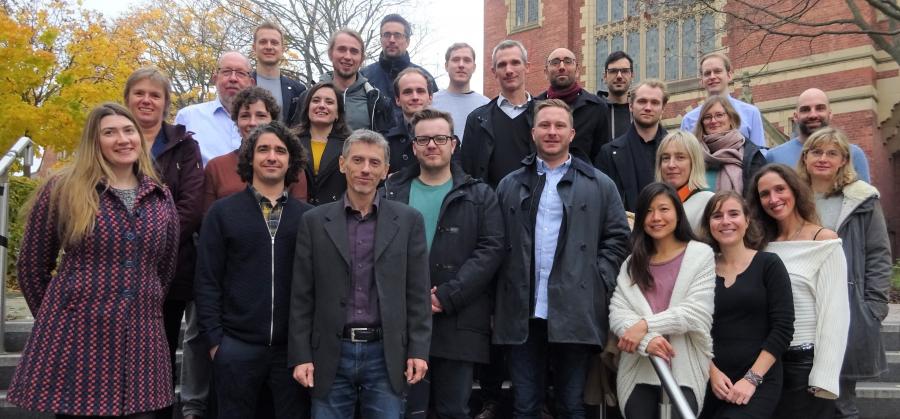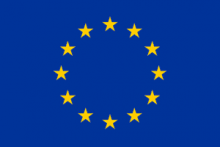PROSEU is an EU-funded research project, bringing together eleven project partners from seven European countries (Universities, research institutes and consultancies, non-governmental and non-profit organisations). It aims to enable the mainstreaming of the Renewable Energy (RE) prosumer phenomenon into the European Energy Union. Prosumers are active energy users who both produce and consume energy from renewable sources.
The growth of RE prosumerism all over Europe challenges current energy market structures and institutions. PROSEU’s research focuses on collectives of RE Prosumers and will investigate new business models, market regulations, infrastructural integration, technology scenarios and energy policies across Europe. The team will work together with RE prosumer initiatives (Living Labs), policymakers and other stakeholders from nine countries, following a quasi-experimental approach to learn how RE prosumer communities, start-ups and businesses are dealing with their own challenges. It will also determine what incentive structures will enable the mainstreaming of RE prosumerism, while safeguarding citizen participation, inclusiveness and transparency.
Moving beyond a case by case and fragmented body of research on RE prosumers, PROSEU will build an integrated knowledge framework for a cross-sectoral understanding of RE Prosumerism, through a comprehensive identification and assessment of incentive structures to enable mainstreaming RE prosumers in the context of the energy transition.
The project will run from March 2018 to February 2021.
Project partners
FC.ID – Associação para a Investigação e Desenvolvimento de Ciências is a non-profit private association, created to support and develop R&D and innovation activities and projects for the University of Lisbon, including at a European level. One of the Research Centres it represents, the Centre for Ecology, Evolution and Environmental Changes (Ce3c), has co-developed the project and is responsible for the overal coordination and management of PROSEU.
The Faculty of Engineering (FEUP) is the largest faculty of the University of Porto, one the most prestigious Higher Education Institutions of Europe. It was partner and/or coordinator of 48 projects, of two ERC Grants and three Individual Marie Curies. Under Horizon 2020, FEUP is a partner or third party in 24 projects and the coordinator of 5 other funded projects. For PROSEU, FEUP will conduct a baseline analysis and characterisation of existing RE Prosumer initiatives in Europe.
ICLEI - Local Governments for Sustainability is an international association of 1,500+ local and regional governments committed to sustainable development. ICLEI Europe provides its extended network of 160 members in the region with a voice on the European and international stage, a platform to connect with peers and the tools to drive positive environmental, economic and social change. ICLEI will be responsible for PROSEU's knowledge transfer, dissemination and community building.
ClientEarth is a leading environmental law NGO, working at national, EU and international level. It mainly works on climate change, deforestation, biodiversity loss and air pollution, complemented by an Environmental Democracy programme. Its aim is to create solutions to key environmental challenges by supporting and promoting the development, implementation and enforcement of environmental law and policy. For PROSEU, ClientEarth will be responsible for the work on policy, regulation and governance.
DRIFT is a leading research institute developing knowledge to support people, cities, sectors and organisations to engage proactively with transitions, including the energy transition. It has four main interlinked activities: research, consultancy, education, public dialogue and debate. Since its establishment in 2004, DRIFT partnered in numerous national and international research collaborations, including several EU-funded projects. Within PROSEU, DRIFT will be responsible for an integrated assessment of incentive structures for RE Prosumer initiatives.
The research group of the Department of Energy, Power Engineering and Environment at the University of Zagreb, is leading in the field of sustainability of energy supply in the region. It specialises in energy technologies, policies and funding. It collaborated in 50+ national and EU projects. For PROSEU, FSB will focus on the identification and removal of technological barriers, implementation of innovative solutions, as well as scientific dissemination of the project results.
Leuphana University of Lüneburg was established in 1946 with the legal status of a foundation. It has created a unique model within the German academic landscape. Through four science initiatives (sustainability & culture, education, management, entrepreneurship) in course work and research, it addresses the challenges of 21st century civil society. For PROSEU its Institute of Finance and Accounting will work on financial and business models for RE Prosumer initiatives.
Eco-union is an independent environmental NGO promoting sustainability in the Mediterranean region. It focuses on the interactions between economy, society and environment, conducting research, advocacy and training on a wide range of thematic areas. For PROSEU Eco-union will be drafting a policy brief on Strategies for Policy coherence and one on Participatory governance for the roll-out of the Energy Union.
IÖW (Institut für ökologische Wirtschaftsforschung) is a non-profit company and scientific institute in the field of practice-oriented sustainability research in Germany. It devises strategies and approaches for viable, long-term economic activity which preserves natural resources. The majority of IÖW’s funding comes from the public sector, but also from corporations, foundations and associations, including NGOs. It is completely financed by projects.
CE Delft is an independent Dutch research and consultancy company with extensive track record in energy-related studies, both at national and EU level. It is skilled across a wide range of environmental topics and also familiar with associated policy networks. Issues relating to energy production and consumption have always been a significant part of CE Delft’s work. It has played a key role in elaborating broad perspectives and technology assessements, identification of strategic choices and detailing of specific policies for a wide range of clients.
The University of Leeds ranks within the top 100 universities of the world. In the UK, it was University of the Year 2017. The University of Leeds currently has 37 active spin-out companies. It is also one of the largest UK Universities. Under Horizon 2020, Leeds is currently coordinating 65 projects and is a partner in a further 44 successful projects. For PROSEU its researchers will be looking into alternative finance and business models for renewable energy prosumer initiatives.














